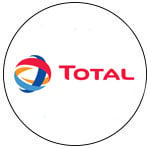
Total’s diversity and inclusion strategy is predominantly internally driven. For many years we’ve recognised that it is not only the right thing to do, but there is also a business case for diversity. There are real benefits to working with people who have different perspectives and different approaches to solving a problem or achieving a goal. It is, of course, also an issue about which shareholders care. They care about how a company treats the environment and other stakeholders, as well as how they treat their employees − so it makes sense on every level.
Total has had diversity programmes in place for many years. We recognise that in order to recruit and retain talent, you have to be open-minded and inclusive. If you’re trying to hire the best person for the job, you can’t start by excluding capable people based on their race, nationality, gender, or disability.
We do not have quotas, but we do monitor certain metrics and we have aspirations on where we would like to see them go, across head office and across all branches worldwide. Each affiliate will have a plan to meet those goals that will reflect the business and the local context.
Cultural nuances
We work in over 130 countries worldwide, so the issues that we face in one location will not be the same as the issues that we face in another. For example, in exploration and production we may have local obligations, by contract or legislative decree, that require a certain number of the positions – often specific senior assignments – be filled with nationals from that country.
Our approach is tailored to where we are doing business, in order to comply with local law, and also to have inclusion that is not just the minimum, but rather best practices that are fair and sustainable.
Aspirational goals
Our initiatives are very much human resources-driven and are more aspirational than directed. We have a diversity council at our group level that is chaired by a member of our performance management committee and which reports directly to the executive committee. They meet semi-annually to debate the framework for the diversity programmes, to review best practices, to examine how well we are doing in meeting our goals based on key diversity indicators, and to propose new initiatives to the executive committee. They are supported by our diversity office. We also have diversity correspondents within each affiliate, so there is a global support network that meets to exchange ideas, practices, and to discuss issues. In addition, within the group we have a diversity day with seminars on various themes, which may include guest speakers. The purpose of diversity day is to make it clear to all employees that inclusion and acceptance is important to us as a group.
Each affiliate has the profile of all employees and, given their current population and estimated hiring for the future, they will set goals on what they would like to see the affiliates looking like in two years’ time, five years’ time, ten years’ time, that sort of thing. It’s a look back from where we were, to where we are, and a plan for getting to where we want to be.
Legal reflects the wider business
The legal department is a part of what the rest of the company is doing. However, because we are a global group of companies, we need expertise in each jurisdiction where we do business as well as expertise in international law. By virtue of our global presence, we will hire people of different nationalities as experts in their country of origin. So we end up with incredibly diverse teams just by the nature of what we do.
Purely from my own observation, it does seem like we have more women in our legal teams than we have in some of the science and technical professions. That may be because more women are graduating from law school than are graduating with degrees in, for example, geophysics, but those trends are changing and I would expect our workforce to evolve as well.
Total is a diverse company in terms of ethnicities and nationalities and I think the legal team reflects that.
